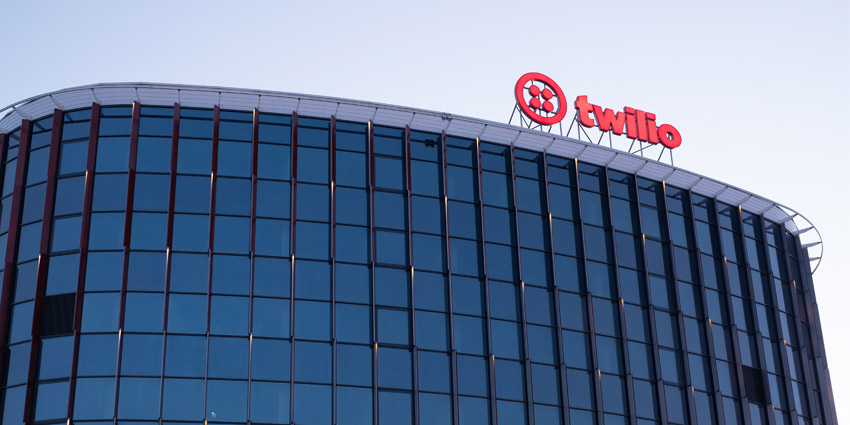Twilio secured a seven-figure deal with IBM in its fiscal Q2, CEO Khozema Shipchandler revealed when reporting the vendor’s earnings.
The “key win” came in Twilio’s Segment business, which has been plagued over recent months, and was its largest deal of the quarter.
Shipchandler was speaking as Twilio revealed sales of $1.08bn for the quarter ending 30 June, up four percent year on year. Segment accounted for $75.2m of total revenue.
“The communications business is performing very well and in our Segment business, we’re focused on executing on our commitments,” he said.
“While reducing non-GAAP operating losses in Q2, we saw continued signs that Communications growth is stabilizing, including quarter-over-quarter improvement in international trends.
“I’m encouraged that our more disciplined approach is unlocking teams to innovate on the critical areas that will enable Twilio to power the future of customer engagement.”
Both the Communications and Segment divisions reported growth, but the former outpaced the latter at four percent and three percent, respectively.
The modest revenue growth was outweighed by a GAAP operating loss of $19m, but this was done from $141.8m in the same quarter last year.
The tone of the call suggested Twilio may be turning a corner, with sales topping guidance and beating analyst expectations. The vendor’s share price jumped as much as seven percent in after-hours trading, despite yesterday’s huge Wall Street sell-off amid recession fears.
However, there is still work to be done, particularly with Segment.
Segment’s operating loss was pegged at $15.8m, but this was using a more favourable non-GAAP accounting method. Twilio does not publish GAAP profit for individual divisions. This was, however, compared to a $21m loss in the previous quarter.
“We made solid progress in improving customer time to value and executing on data warehouse interoperability,” Shipchandler said when speaking on Segment.
“We also made significant improvements in our cost profile in Q2 and lowered our non-GAAP operating losses by 25% quarter over quarter.”
He also revealed that 40 percent of Q2 deals were multi-year, compared to 17 percent in Q2 last year.
The improvement was largely attributed to improved customer onboarding and faster time-to-value, particularly around customer use cases.
However, there was a cautious tone about not expecting too much too soon from Segment. Shipchandler said that growth will likely be “muted” for the foreseeable future.
Chief Financial Officer Aidan Viggiano, said the focus is on customer retention.
“Mitigating churning contraction remains a focus for Segment, and we’re encouraged by the progress we made in Q2,” he explained.
“We are improving time to value, and customers are deploying use cases four times faster as a result. We are also pushing for more multiyear deals with customers.”
Segment Struggles
Twilio has faced huge pressure from activist investors over recent months, culminating in the departure of founder and CEO Jeff Lawson at the start of the year.
Investors had pushed Twilio to sell Segment, but the vendor resisted and confirmed plans to retain it in March.
“Myself, the Twilio management team, and the Board evaluated an extensive range of alternatives for Segment’s path forward,” Shipchandler said at the time.
“We unanimously came to the same conclusion: retaining Segment and taking aggressive action to accelerate the path to profitability is the best opportunity available to enhance value for our customers and shareholders.”
Partner Play
On the Q2 earnings call, Shipchandler said that near-term growth for Twilio will likely come via partners.
He said he’s particularly pleased with Twilio’s success in recruiting new partners and independent software vendors.
“During the quarter, we achieved an eight-figure renewal with a leading customer experience provider who will continue to embed Twilio Voice within their customer service software solution,” he said.
Additionally, Twilio signed a new partnership with Omnisend, an omnichannel marketing platform for the SMB retail market, to help expand its footprint into new geographies.
Twilio also extended co-sell partnerships with Airship, Bloomreach, Braze, Insider, and Klaviyo into new territories to enhance a data-enriched end-to-end marketing experience.







